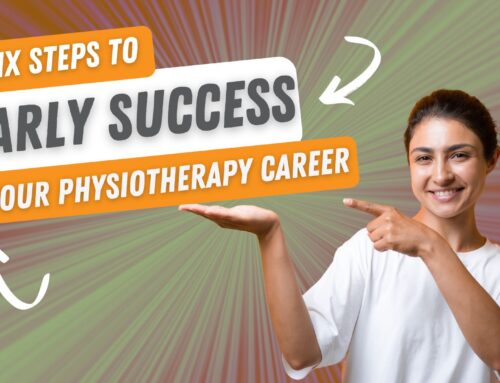Physical therapy and exercise are a key component in the treatment of Multiple Sclerosis symptoms. At Propel Physiotherapy, we are now using a new evidence-based technology called a PoNS™ medical device in conjunction with physical therapy for clients experiencing gait deficit due to mild and moderate symptoms from MS. PoNS Therapy™ is an evidenced-based technology in the treatment of neurological injuries that has the potential to improve walking and balance.
Multiple Sclerosis is an often a debilitating disease that attacks the covering (myelin) of nerve cells in the spinal cord and brain. This disease is a major cause of chronic neurological disability in young and middle-aged adults (aged 18-50) affecting 1.3 million people worldwide[i]. This neurological condition can have many impacts on a person’s cognitive and physical health, including impacting muscle strength, endurance, balance, and mobility.
The Effects of Exercise on Multiple Sclerosis
Physical therapy helps in the maintenance of muscle strength and endurance, mitigate the symptoms of pain and fatigue and improve the independence and daily activities for those living with MS. A Cochrane Review of 168 clinical trials found that people with MS who participated in exercise and physical activity improved their everyday activities, function, and health related quality of life.[ii]
You may also enjoy reading: Physiotherapy in Multiple Sclerosis Management
In MS, the loss of myelin prevents accurate and timely transmission of signals from the brain to the body. Cells called oligodendrocytes are cells that are found in the brain and spinal cord and are involved in the production and repair of myelin.
New research has focused on the effects and mechanisms of physical activity at the cellular level. In a study funded by the MS Society of Canada, mice were induced with MS lesions and comparisons were made between active and non active animals. The study found that exercise enhanced the number of oligodendrocytes and rate of remyelination.[iii]
Research has also focused on the immunomodulatory effects of exercise in MS. In multiple sclerosis the immune system creates the inflammatory response that triggers the attack and breakdown of myelin in the nervous system.
Although no standardized exercise protocols have been developed and animal models have been used, clinical studies suggest that exercise in MS may promote immunoregulatory mechanisms that have the potential to limit axonal damage, demyelination and synaptic dysfunction to enhance clinical outcomes.[iv]
PoNS™ Medical Device In Recovery & Restoration of Function
An emerging and exciting technology is the PoNS™ medical device. This new technology excites the neural network flow to the brain, enabling brain changes, or neuroplasticity. This has the potential to help MS clients by improving walking and balance.
In one randomized control study of MS, clients used the PoNS™ device in conjunction with physical therapy over a 14-week period. The results found that those using the PoNS™ medical device had double the improvement in gait scores compared to those that received only physiotherapy.[v]
A second study with MS clients found that PoNS™ stimulation combined with cognitive and physical rehabilitation can improve motor performance and working memory while also enhancing neuroplasticity.[vi]
Our certified PoNS Trainers™ have experienced firsthand how PoNS Therapy™ has helped improve the walking and balance of our MS patients. We have documented the results of one of our clients who recently completed the 14-week program and shared the results in the following case study.
You may also enjoy reading the full: PoNS Therapy™ Case Study
Propel Physiotherapy prides itself on being at the forefront of new technologies and evidenced based advances in the treatment of neurological injuries. We now offer the opportunity for clients to trial the PoNS™ medical device to help recovery and restore function. Come see how our clinic offers the latest advancements to help enhance your recovery and get you back to living life fully.
You may also enjoy reading: PoNS Therapy™ for Balance and Walking Deficit from mmTBI
References
[i] Rehabilitation for people with multiple sclerosis: an overview of Cochrane systematic reviews
[ii] Rehabilitation for persons with multiple sclerosis
[iii] Jensen S et al. (2018) Multimodal Enhancement of Remyelination by Exercise with a Pivotal Role for Oligodendroglial PGC1α. Cell Rep. 24(12):3167-3179
[iv] Gentile A, Musella A, De Vito F, et al. Immunomodulatory Effects of Exercise in Experimental Multiple Sclerosis. Front Immunol. 2019;10:2197. Published 2019 Sep 13. doi:10.3389/fimmu.2019.02197
[v] Leonard G, et al. Multiple Sclerosis Journal–Experimental, Translational and Clinical. 2017; 3(1):2055217317690561
[vi] Tyler E, et al. Journal of Neuroengineering and Rehabilitation. 2014; 11(1):79
Written by
FOLLOW US!
PoNS™ MECHANISM OF ACTION
BOOK A COMPLEMENTARY CONSULTATION
FOR CANADIAN RESIDENTS ONLY
Please select an available time slot and complete the contact form to book a 15-minute consultation with registered physiotherapist Kyle Whaley. Find out if PoNS Therapy™ is right for you.







